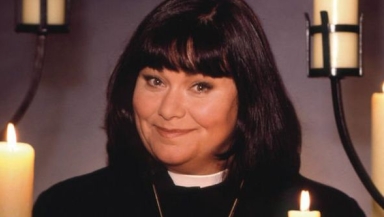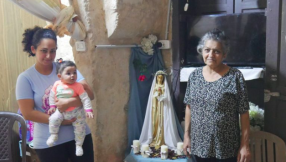
Archbishop of Canterbury Justin Welby has taken aim at how Church of England vicars are shown on TV – but was he right?
In a speech to the National Farmers' Union, he told delegates, "I generally find depictions of vicars on TV to be depressing – they are portrayed as rogues or idiots ... the reality is very different – it is actually of hard-working normal people, caring deeply about what they do and working all the hours there are to do it."
That description of CofE vicars is absolutely true – but it's also true that people in most jobs find it hard to watch TV dramas that feature their work. It's too frustrating to watch a film or series and see events or actions depicted that, we think, would 'never happen in real life'.
But fiction is not real life, and it's often the unusual or bizarre that make for the best viewing.
As someone who has been involved in communicating the Church and the Christian faith for almost 50 years, I have three words for Justin Welby, whom I hold in high esteem.
The words are:
Rejoice – that Church of England vicars are still being featured in movies, TV soaps and detective series. Sadly, the numbers attending CofE services, or opting for church weddings, christenings and funerals are declining. So fewer people are getting to meet vicars in real life.
Years ago, the British army used to have a public relations project to boost its profile. As a local newspaper reporter, I spent a week on the Canadian prairies with soldiers from our circulation area. Its aim was to 'keep the army in the public eye.' A series of high-profile wars removed the need for the campaign.
Now it may be the creators of TV series like 'Grantchester', 'Broadchurch' and 'Rev' that are doing our profile-raising work for us.
They may not be conveying the exact image we would like – but the alternative could be to be ignored by the culture entirely. And I don't think Archbishop Welby would want that either.
Reflect – that the Church of England is just one part of the rich mosaic of Christian life in this country. All kinds of independent, often Pentecostal, churches have sprung up in recent years, some catering for believers from specific ethnic backgrounds. I rejoice in the growing diversity.
These churches, alongside some of the older denominations, such as the Methodists and Baptists, gain far less media coverage than the CofE – and are often doing amazing community and outreach work at the grassroots across the country. Largely, this goes unnoticed, both by the news media and TV script writers.
It could be that historic Anglican churches with stained glass and candles make better backdrops for drama ... or it could be a lack of imagination by TV writers.
That the CofE gets this sort of media attention can bring drawbacks – but it's a positive for the established Church in raising its profile and boosting its influence.
Reward – behind all the best TV and radio depictions of the Church of England and other churches, there is often expert advice from someone who knows the CofE and the Christian faith well.
Kate Bottley and Richard Coles are among the high-profile real-life vicars who appear on TV and radio and promote a positive, friendly image of the CofE and the faith.
There are many others, often at regional or local level, who speak for the Church in a lively engaging way.
Behind the scenes, clergy and lay people advise TV companies on drama and soaps and help them to be accurate in what they show. There are also Christians working within media companies using their experience in a wide range of productions.
All these people deserve praise from the Archbishop and other leading bishops in the CofE.
Re-runs of 'The Vicar of Dibley' may make the hearts of some clergy sink – but the comedy series presented a warm, friendly and totally human face of the CofE.
It's a face that's seen, at first hand, by fewer and fewer people each year.
Rev Peter Crumpler is a Church of England minister in St Albans, Herts, UK, and a former communications director with the CofE.













